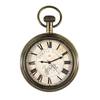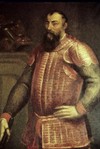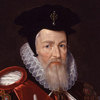Was there a general crisis in government in the last years of Elizabeth's reign, 1589-1603? Flashcards
When did Philip II die?

1598
Before about 1589, Elizabeth’s court and council had been relatively free of faction. What changed?

Between 1588 and 1591, many of Elizabeth’s trusted advisors and courtiers who had served her since the beginning of her reign died. These included the Earl of Leicester in 1588, Walter Mildmay in 1589, Francis Walsingham in 1590 and Christopher Hatton in 1591.
Why did small towns tend to suffer more from the socio-economc problems ofthe 1590’s?
Because they lacked the trading routes and economic wealth ti support their poor in times of hardship.
Although the authorities certainly saw this as a period of crisis, was it?
It is less clear that the socio-economic system was on the point of collapse.
How did more tensions emerge in court in 1597?
Lord Cobham died and the offices he had held became available. These included valuable and influential posts of Lord Chamberlain and the Lord Lieutenancy of Kent. Essex lobbied the Queen on behalf of his follow Robert Sidney, but Sidney was passed over in favour of Cobham’s son and heir.
What was the claim to the throne held by the Infanta Isabella, Spanish Princess and daughter of Philip II?

A very distant one, via John of Gaunt, son of Edward III.
When was Elizabeth persuaded to intervene directly to help the Dutch rebels?

1585
What was the reason for Mountjoy’s generosity to Tyrone when he finally submitted on 30 March 1603?

Elizabeth had died six days before and Mountjoy, who opposed the Cecil faction, was keen to return to England as soon as possible. Mountjoy may therefore have offered the concessions in order to reach a settlement as quickly as could be.
Why were rising prices and food shortages problems particularly severe in the towns?
Because a high proportion of the population were living on or below the poverty line. The situation was made even worse by migration from the countryside, as the rural poor moved to the towns in search of food and jobs. For example, a survey for Ipswich in 1597 reveals that 13% of the population were classed as impotent or able-bodied poor.
In March 1603, Elizabeth entered her final illness. There are conflicting accounts as to whether she finally agreed that James should be the heir, but what really mattered?
That James, a foreigner with a disputed claim, was able to inherit the throne peacefully thanks to the manoeuvrings of a faction who drew their power from their connection to the court, not from their military strength.
Essex tried to court popular opinion as a ‘man of the people’. Why did this get him in trouble?

Sometimes he seemed to be challenging Elizabeth’s own popularity and power.
During the 1590s, it was costing each county 2000 a year to pay for and equip the men who were to serve abroad. What was the result of this.
In Suffolk and Norfolk, these demands led to resistance through non-payment. Other counties could not afford proper equipment for the soldiers, so they were sent abroad not properly equipped, decreasing morale further.
England’s war with Spain (1585-1604) was fought on several fronts. What were these?
English troops were sent to the Netherlands and to France; there were also naval raids against Spain itself and against its shipping in the New World. Spain responded in kinds with several invasion fleets and by intervention in the Irish rebellion against English rule.
How was most of Ireland controlled?

By Anglo-Irish members of the nobility, known as the ‘Old English’, who maintained their own private armies, and acted as quasi-kings in the regions under their control. These men were the descendents of earlier English settlers who intermarried with the native Irish.
Why did English ships’ attacks on Spanish interests on the Iberian peninsula and in the New World have varied success?
Mostly, because the English government did not have sufficient resources to fund them properly, but also because Elizabeth’s cautious approach meant that she was not willing to commit all her forces to an all-out attack.
What did Cecil base his reputation on?

His military prowess; he was prepared to fight duels, built up a military following, and sought military success abroad.
Why was Elizabeth sometimes persuaded to send troops, ships or money to her allies during England’s war with Spain (1585-1604)?
Because her counsellors feared the Spanish Catholic dominance of the entire European coastline from Spain to the Netherlands and the threat of invasion that that would pose to England.
How did the parliaments of the 1590s depart from the role of previous Tudor parliaments?
The behaviour of the commons was more rowdy and needed more careful management by Elizabeth’s councillors, not all of whom had the necessary. It seemed that they and indeed Elizabeth had not realised fully that they were dealing with a group of men who were as convinced of their own rights and privileges as Elizabeth was hers.
When did Henry IV convert to Catholicism and make a truce with the Catholic league?

1593
Although both Elizabeth and her councillors made mistakes in their management of parliament, these were easily solved and were not fatal. How so?
Elizabeth herself was the mistress of skilful speeches, which won the MPs over. Even Robert Cecil contributed to the management of parliament. Like his father, he was able to place 30 of his own clients into constituencies in 1597. These Cecil clients, like the clients of other members of the nobility, could be relied upon to vote the way Elizabeth wanted.
228
2 unpaid overseers were to be elected each year for each parish, with the power to put to work those without money or jobs and supervise the poor house. They were also responcible to assess what more was needed to support the poor, and for collecting and distributing poor relief.
Their work was to be supervised by the JP’s; they were ordered to meet monthly and to submit their accounts to the JP annually.
What made the general feeling of discontect with the power and weolth of the court worse?
The presssures of a big and costy war that lasted for teh final 18 years of her reign. there is some evidence that some localities resented the men, money and equipment they had to give up.
The English attacks on Spanish interests on the Iberian peninsula and in the New World were funded as a joint-stock enterprise, with the queen, members of the nobility and wealthy merchants all contributing to the costs, but all expecting a share of the profits. What did this mean tactically?
It meant that, often, profits were put before strategic advantage.
Though she respected them greatly, Elizabeth was not prepared to give in to all of the demands the Cecil faction placed on her. How so?
Robert was hoping to be appointed as the queen’s secretary, a position left vacant when Walsingham died in 1590. However, Elizabeth left the position vacant until 1596, when Cecil finally achieved his aim.
In Essex’s absence (while he was Lord Deputy of Ireland), what did Robert Cecil ensure?
That all key posts went to him, his friends and his family.
Why was Essex’s campaign in Ireland unsuccessful?
Essex’s own mistakes were partly to blame, but the situation was made worse by the lack of support from Elizabeth’s government.
More seriously than the Cornwall raids of 1595, what happened in regards to England’s war with Spain in 1596-97?
Philip II sent armadas in 1596 and 1597 that got as far as the English Channel, though both were destroyed by bad weather as opposed to English intervention.
When did Philip II die, who succeeded him and did his successor continue the war against England?

Philip II died in 1598, and his successor Philip III did indeed continue the war against England.

How did Elizabeth manage to defuse the monopolies situation in 1597, and what did she get in return from the Commons?
She promised that all monopoly licenses would be examined, and in return the Commons agreed to pass another substantial grant, ironically with much less opposition than in 1593.
What happened to Peter Wentworth (MP for Northampton) when he tried to persuade other MPs to introduce a petition and bill into parliament asking that the queen decide the royal succession?
The Council heard about what he was planning and arrested him and his allies. He was sent to the Tower, where he died four years later.
Some monopolies were relatively uncontroversial because they were the Tudor equivalent of a patent, Which monopolies caused complaints?

Those that Elizabeth granted to her courtiers for profit. Walter Raleigh, for example, had monopolies in tin, playing cards and the Licensing of Taverns. The System became corrupt because people made huge profits for themselves by raising prices. Because they had the monopoly on a product, there was no competition, so monopolies forced prices up. At a time of social and economic hardship, the price rises were particularly damaging, especially when commodities such as steel and salt were affected.

214
Crime rates raised in the 1590s, leading to more prosecutions in the law courts. In particular, the rate of theft rose considerably in the years 1596-98, probably as a result of social and economic hardship. It is likely that many of these thefts were a result of a genuine need for food and clothes, and were impulse crimes.
What were the two main sides to the factions that developed in the 1590s?
They coalesced around William Cecil and his son Robert on one side, and Robert Devereux (Earl of Essex) on the other.
How was the Spanish war effort, like the English one, coming under increasing strain?

Philip was attempting to fight wars on three fronts, and this led to the overextension of his resources. Spanish troops in the netherlands mutinied every year from 1589-1602, and Spain actually went bankrupt in 1596.
Why did late lizzy local Govt work effectivley?
Because Elizabeth appoimnted the same people to positions of command locally as she did to her privy council. Even though she outlived all of her most trusted advisors, the system she had created continued to work because local and cdntral Govt were linked together in men such as the Cecils.
In 1595, what happened in regards to England’s war with Spain?
A small Spanish force of about 400 men actually made a series of landing raids in Penzance (Cornwall), though they fled at the news that a fleet under Drake was approaching.
Why did their process of raising concerns about government policies not mean that the Commons was hostile to or even wanted to challenge royal power?
As long as Elizabeth listened and was seen to respond, there would be no crisis. In 1597 and 1601, the queen came close to misjudging the Commons’ mood, but she had the political awareness to stop the serious complaints in these parliaments from becoming anything worse.
229
the impotent poor were to recieve relief either in their own homes or in Almshouses, the able bodied poor were to be given work in poor houses, while persisant vagrants and beggars were to be sent to the houses of correction.
In 1599, Elizabeth was forced to sent the largest army of her reign to deal with the Irish revolt. Led by Essex, the army had 16,000 infantry and 1300 cavalry. How did Essex fail miserably in his mission?

He spent the summer moving through Leinster and Munster with his army without bringing Tyrone to battle. He only marched north when Elizabeth angrily ordered him to do so. Even then, he made a truce with Tyrone, instead of fighting him. Essex then deserted his post to rush back to England and justify his actions to the queen.
How did the queen’s management of the faction situation at court undoubtedly make it worse?
Her refusals to make decisions regarding key appointments led to more faction-fighting, not less. She was also prepared to tolerate Essex’s angry outbursts and sulking because he flattered and amused her. At the same time, she allowed patronage to come under the control of just one group- the Cecil faction.
In regards to resentment at court, how did faction contribute to a sense of crisis in the 1590s?
In that it created political instability and a noble revolt.
The Oxfordshire rising and the riots of 1595-96 were the result of discontent among the lowest in society; they were not joined by those of higher rank. What did this mean?
This meant that the riots lacked leadership and were easily suppressed, though they certainly frightened the Govt into taking action.
Why was James VI viewed as the best candidate for the throne by many?

He was Protestant, which for the Protestants in England meant that he seemed the best candidate to protect their interests. James’ supporters also argued that Henry VIII’s will was not valid because it was stamped with the dry stamp rather than signed personally.
The parliament of 1597 saw much more serious criticism of Elizabeth’s government- what in particular?
The abuse of monopolies.

What was the negative result of Elizabeth’s reluctance to commit a large amount of money and men to any one military campaign?
The English though achieving several important victories, were never able to retrain the upper hand over sp;ain, She ensured that England did not lose, but also that it could not win, so the war dragged on.
What was the social and economic situation before the 1590s?
Before, there had been a period of relative social and economic stability with mostly good harvests. The population, which had declined in the worst years of death and disease in the 1550s, had recovered and was growing again. Although hunger and poverty were still very real problems, the relative stability of the first three decades of Elizabeth’s reign had given local authorities the opportunity to stockpile foods.
For those with little to no income, what did the price rises of the 1590s mean?
They struggled to buy the basic foods that they needed for survival, especially since the value of real wages was falling. In 1597, they reached their lowest level for any year between 1260 and 1950 according to the Phelps-Brown index.
As the price of wheat soared in the 1590s, those who could not afford it began to buy other, cheaper, but less edible grains, such as barley, oats, peas and beans. What was the result of this?
This pushed up demand for these products as well, leading to further price rises.
Elizabeth remained unmarried and childless, with the issue of who would succeed her becoming increasingly prominent in court politics as time moved on. Why did she refuse to name a successor, even on her deathbed?
Because she feared that he or she would become a figurehead for plots against her.
In 1595, Henry IV of France rallied French nationalism by declaring war on Spain. How did this help England?

Because it meant that the balance of power in Europe was restored and the Spanish were now fighting a united France.
In 1601, the queen and the Council were alerted to Essex’s plans and Elizabeth demanded that the earl come to court and explain. How did Essex respond?
He felt that revolt was the only option, taking hostage the four councillors who were sent with the Queen’s message. With about 140 followers, he marched towards London where he hoped to get support from the trained bands and popular support. When this failed, he returned to Essex house.
Why were the only real supporters of the Infanta Isabella as a candidate for the English throne the Jesuit Priests?
Moderate English Catholics did not support the Infanta’s claim because they hoped to get more religious toleration by accepting a Protestant monarch: James.
How did ‘Commonwealth men’ make the 1601 parliamentary situation worse?
They burst into the parliament lobby and stairs to beg MPs to do something about the abuses of monopolies.
What was Essex’s grave mistake in 1599?
In September 1599, he left Ireland and returned to England, explicitly disobeying Elizabeth’s orders. He burst into the Queen’s privy chamber where he found the Queen only just awake and not ready to receive visitors.
When did Henry IV become king of France?

1589
What did the fact that Elizabeth was persuaded to intervene directly to help the Dutch rebels signal?
The English entry into war with Spain, which would last until 1604.
How did Elizabeth keep Essex under close control?

Though a member of the nobility, he was not well off, and he was reliant on the queen for enough patronage to support himself and his followers. Crucially, he always remained reliant on the queen for his power and influence; he did not have the resources to build up a following in the localities and his power was based at court.
What was unusual about the participants in the 1601 parliament?
It contained 253 barristers or gentry educated at the Inns of Court, the highest number of lawyers in any Tudor parliament. These men were not only well versed in legal procedure, they had also come across the problems caused by monopolies in the law courts, where those with grievances against the monopolies were unable to get justice. In addition, at least 157 MPs in this session of parliament had also been present in 1597, and were therefore likely to be sympathetic to complaints about monopolies.
Which dangerous historical precedent did Essex use to support his actions?
It was arranged that the Lord Chamberlain’s company would perform Shakespeare’s ‘Richard II’, which is the the story of how a tyrannical king was deposed by his cousin Bolingbroke. The deposition scene in the play had already been banned as too politically sensitive, but the performance went ahead and included the forbidden scene. Essex was sending out that he, like Bolingbroke, was justified in his actions. He was also implying that Elizabeth, like Richard, was surrounded by favourites who gave her false advice.
How did Robert Cecil mishandle the 1601 parliamentary situation?
The Crown only wanted the grant of subsidies, not to discuss other issues. Cecil told parliament that he wanted ‘no fantastic speeches or idle bills’, which was not what the angry MPs wanted to hear.
Though England did not lose the war to Spain, how was the war still detrimental to economy and society as a whole?
The longer the war dragged on, the more damage it did to England’s economy and society, as the escalating costs both in terms of money and loss of life led to increasing discontent and criticism of the regime.
In 1598, Elizabeth suggested that the Essexian William Knollys should be appointed Lord deputy of Ireland, but Essex suggested the Cecilian George Carew instead, probably in an attempt to remove him from Court. What did this lead to?
This led to a full-blown argument in the Privy Council. Essex turned his back on Elizabeth, she slapped him and Essex put his hand on his sword as if to draw it. The Earl of Nottingham had to intervene and Essex withdrew in a rage, with the parting shot that he would not have taken such an insult from any monarch, even Henry VIII.
Why did the English government have a difficult relationship with the Old English?

Because, while some were happy to cooperate, others resented English attempts to extend control throughout Ireland, and rebelled. Elizabeth had already faced rebellions in Munster in 1569 and 1579.
In contrast to the failed 1589 naval mission to Spain, some missions were successful, such as the mission led by the Earl of Essex as a joint mission with the Dutch to attack Cádiz in 1596. What happened during this?

Two Spanish ships were destroyed, two were captured and Cádiz itself was captured temporarily.
Why were there further tensions in Parliament in 1593?
Because. before parliament even met, Peter Wentworth (MP for Northampton) had tried to persuade other MPs to introduce a petition and bill into parliament asking that the queen decide the royal succession.
Why was the growth of Spanish dominance in Europe (aided by Spain’s annexation of Portugal in 1580) an issue contributing to the Anglo-Spanish conflict?
Because it threatened the balance of power.

223
The books were documents that were sent to all JP’s telling them what actions they should take in the event of plauge or famine, for plauge, they were to quarantine houses where there was disease; these houses were to be guarded by watchmen to ensure the sick remained in isolation. in the event of famine, JP’s were ordered to make searches for grain (in a attemt to combat food hoarding), and set up the compulsary sale of food to those in need. In times of real shortage,however, it is unlikely that these measures were particulary effective, especially as there was simply not enough food in circulation.
Like James VI, Arabella Stuart was descended from Margaret Tudor, and had been brought up in England. Why did the Cecils favour her cousin James?

Perhaps because she had Catholic sympathies.
Why, in the early 1590s, did Tyrone’s relationship with the English government become tense?

Because O’Neill felt under threat from the growing number of English Protestant colonists in Ireland who threatened to encroach on Ulster from the south, and he wanted Elizabeth to grant him the right to rule Ulster. Elizabeth would not agree.
Why was the fact that Parliament raised concerns about government policies and appeared to be, on occasion, challenging the prerogative not an issue?
Because this was a traditional part of monarch-parliament relations. Part of parliament’s role was to act as a safety value for local grievances. In airing these grievances, Parliament was notifying the queen to potential sources of tension before they could escalate.
What was the result of the fact that England’s war with Spain (1585-1604) was fought on several fronts?
England’s resources were stretched to their limits, which in turn led to problems for Elizabeth’s domestic government with both parliament and the rule of the localities.
225
It ordered that vagrants be arrested, whipped and returned to their parishes were they were to be forced to work if they were able bodied or sent to the almshouse if they were impotent poor. Persistant vagrents were to be sent to the houses of correction or even to work on the English galley ships.
the final punishment was to be executed to felony.
What was the social and economic situation in 1597?
It had deteriorated; the war with Spain was continuing, bringing increased fears of invasion, and Tyrone’s rebellion in Ireland had broken out.
What other than the succession issue divided factions at court?
Obviously religion, but largely the war with Spain; what tactics to follow and even whether to continue fighting.
It is easy to overstate the case for the instability caused by faction; for example, Essex and the Cecils were both reliant on the queen to some extent for her favour and patronage. What did this mean?
She could have withdrawn her support for them at any time, as she did with Essex, leaving them without the source of their power, office and position at court. The fact that the nobility were now reliant on maintaining a presence at court in order to secure power and influence meant that their traditional feudal and military roles had been almost entirely undermined.
Elizabeth was persuaded by her counsellors to give both financial and military aid to both Henry IV of France and the Dutch. What was given as aid?

She set £35,000 to Henry IV in 1589 and another £10,000 in 1590. She sent 4000 troops to France in 1589, another 3000 to Brittany in 1591, and another 5200 in 1592-93. A further 3000 troops were sent under the Earl of Essex to besiege Spanish-held Rouen in 1591. At the same time, English troops under the command of Sir Francis Vere were helping the Dutch rebels.
By the 1600 expiry of Tyrone’s truce with Essex, who had Elizabeth replaced Essex with?

Charles Blount (Lord Mountjoy) at the head of a force of 13200 men.

Why were the MPs angered when Cecil told them that they needed to rethink the amount they were prepared to offer in 1593 in terms of tax?
Because they believed that the house of Commons should have sole rights to grant taxation, as they represented the majority of the taxpayers.
Edward Seymour (Lord Beauchamp of Hache) was descended from Catherine, daughter of Frances Grey, but why wasn’t his claim secure?
His mother had married without Elizabeth I’s permission, and her marriage had been annulled, technically making Seymour illegitimate.
Essex himself was a Lord Lieutenant, and he attracted at least 12 deputy Lord Lieutenants into his faction. However, what was he crucially lacking?
He did not have the support of his fellow Lord Lieutenants, who were ultimately in charge of military musters. The Cecils, meanwhile, used their influence to gain supporters both in the Council and in the key positions in the Council of the North, which enhanced their military support base
The Social and economic problems of the the 1590’s were,in some ways,very serious for Elizabeths Govt, how so?
At a time of war and high taxation, the spread ofriots and discontent made the authoroties worry that society would break down and the poor would rise up against the rich.
The demands of war led to tensions within local government; local officers were put under increasing pressure by the central government to meet its demands. Between 1585-1603, 105,810 men were forced into military service. Some local officials began to resist government demands, though their resistance was passive, not violent. Give an example of this.
By 1592, local landowners were resisting attempts to send the county trained bands abroad. The bands were experienced, but because of their training it was felt that they should be used for national defense instead. The bands were often from those of higher status such as yeomen and artisans who could avoid conscription. The deputy lieutenants of Essex admitted that they were substituting men of lower status for those in the bands who had been chosen to serve abroad.
When was the third Spanish Armada?
1597
Boosted by large forces, Tyrone was able to take on the English army. What was his first major victory?

In 1598, he won a major victory over the English at the Battle of Yellow Ford where around 830 English troops were killed and 400 wounded.
Tyrone arrived at Kinsale in December 1601 with an army of 6500. Thinking he would be able to defeat the English, who were trapped between the Spanish and the Irish, Tyrone prepared for battle. What went wrong?

Mountjoy launched a surprise attack before the Irish forces were ready. The battle at Kinsale was the last of the rebellion, as Tyrone retreated to Ulster and January 1502 the Spanish troops finally surrendered.

Why was the anger of the Commons in 1601 made worse to the point that some MPs were prepared to introduce a parliamentary bill to restrict the royal prerogative on the issue?
They had seen that petitioning the queen in 1597 had made no difference.
Despite Essex’s claims, Cecil also supported James’ succession. Why did he?
Because it was the best means to secure his own political future.
What happened in regards to Tyrone’s revolt in 1601 before December?

Tyrone was saved by the arrival of the Spanish troops that had been promised in 1597. 3400 highly trained Spanish soldiers landed at Kinsale, bringing with them siege guns. Mountjoy was forced to besiege the Spanish at Kinsale using 7000 men, but this freed Tyrone to march south to join his allies, gathering reinforcements as he went.

Between 1600-03, Cecil was in secret correspondence with James. Why could he not support him openly?

Because Elizabeth would not commit herself; he could not risk her anger.
Although the levels of hardship were not felt as severely in all parts of the country, some areas such as the rural uplands of the north and south west suffered disproportionately, what happened there?
it was in these regions that there was genuine death and starvation.
Even worse than suspension from his offices after his 1600 trial, how did Elizabeth punish Essex?

She refused to renew his monopoly on sweet wines and Essex rapidly fell into debt.

Wat shows that , dispite the negative, the case fora crisis in Govt 1589-1603 can be overstated?
There was no major popular regellion in the 1590’s dispite the severity of the economic conditions, Though there was discontent raised, Govt did not stop, and nor did the leadersor local society reberl against Govt demands.
What would have happened if Mountjoy’s army had been defeated at Kinsale?

ireland would have fallen under the control of a large and united Catholic Spanish and Irish force, which Philip III could have used as a base either for further operations against the English navy in the Atlantic or, even worse, from which to invade England.
Why did it worry the Govt that rioters looked back to KEtt’s rebellion as an inspiration?
Because Kett’s rebels had targeted their social superiors.
Which circumstances made it unsurprising that Elizabeth’s later parliaments were tension-filled, thus giving the impression of crisis?
The social and economic crisis that had a profound effect in England from the 1590s on the moods of both ordinary people and the MPs who feared the effects of increasing and incessant taxation on a country that was already stretched to its limits and the continuation of the war with Spain and the start of Tyrone’s revolt (which meant that Elizabeth remained reliant on parliament for grants of taxation) while the demands of war created additional tensions in the localities.
Why, in 1589, did Philip II decide to get directly involved in the French Catholic league rather than simply subsidising it as he had been doing before?

In 1589, the Protestant Henry of Navarre became King henry IV of France. By intervening directly in the French Catholic League, Philip hoped to help them defeat Henry IV, who was allied with the Dutch Protestant rebels and with England.
Essex planned another campaign against Spain in 1597, but this was unsuccessful and led to the Queen’s displeasure. Essex, meanwhile, was angered by the promotion of Charles Lord Howard, another Cecil supporter, to the rank of all of Nottingham. Why was he angry and how did he react?
According to the rules of precedence, this meant that Howard now outranked Essex. Essex, as a member of the traditional nobility, was furious and challenged the earl to a duel before withdrawing from court in a rage.
What in particular created tension in 1597 and 1601?
Resentment over monopolies and Elizabeth’s and Robert Cecil’s handling of complaints in Parliament.

What was the consequence of the Europe-wide bad harvests?
In some regions there was famine; other regions saw severe food shortages and riots, especially in urban areas. Death rates rose and the government feared that the social order would collapse.
The Govt’s fear in 1590 of rebellion like Kett’s was more due to rumour and paranoia than genuine risk. What was thef inportant difference between the problem of 1549 and the 1590’s?
The Wealthier husbandmen ( farmers with small landholdings) who might once have sided with the rebels had become more prosperousand better educated, tending to participate in locat Govt rather than rise up against it.
In some ways, how did the war against Catholic Spain and in support of the Protestant Dutch and French Kings help England?
They helped to increase English patriotism and a feeling that God was looking favourably on English Protestants by granting them victories. Individual triumphs such as that of Essex at Cádiz were greeted with celebrations and have English propagandists plenty of ammunition for their anti-Catholic, anti-Spanish campaigns.
Access to the queen was vital in the faction leaders’ attempts to get key appointments for their followers. Elizabeth’s natural cautiousness meant that she was often reluctant to commit herself, but what did this only lead to?

More pressure being applied by those who wanted her favour and patronage.
What did the fact that the Cecils competed with Essex for power and influence and access to patronage cause?
This led to rival groupings forming at court, which was the centre of power and patronage because it allowed access to the queen
The European context in which Tyrone’s revolt took place made it a serious threat to English security. Why was the timing of the revolt at the worst possible time for Elizabeth in 1595?

England’s resources were already overextended as a result of ten years of war in the Netherlands, France, Spain and the New World. Elizabeth was both unable and unwilling to send enough troops to deal with the situation, which allowed the rebellion to gain momentum. Even worse, the religious element of the revolt meant that the Spanish could justifiably offer support to fellow Catholics.
When did Parliament raise the issue of monopolies?

1597
What were the core beliefs of the House of Commons in Elizabeth’s reign?

They believed they had the sole right to introduce taxation bills into parliament. Its members saw themselves as the representatives of their voters and local communities, who were the ones who would have to pay the tax. Although this apparent sense of accountability was sometimes less important to MPs than their private interests, they were still uneasy if they felt that the queen or her council were trying to dictate to them on matters of taxation, as was the case in the 1593 parliament.
What did Philip II have to gain from Henry IV of France being defeated, other than the fact that Henry was Protestant and Philip a fervent Catholic?

Philip hoped that, were Henry defeated, the Dutch and English resistance against Spain would also collapse. He may even have been planning to put his daughter, the Infanta Isabella, on the throne. Had he succeeded, the Spanish would have controlled the European coastline from Spain to the Netherlands.
English tactics, which were largely the result of insufficient funds, meant that England could not mount a decisive challenge to spain. Why, however, did Elizabeth’s cautious approach mean that they did not lose the war completely?
She never risked committing all of her troops or resources in any one campaign. Her tactics were enough to stop the English losing to Spain, but never enough for them to win decisively.
In 1588, what did Elizabeth give Essex?

The lucrative monopoly on sweet wines, which had previously belonged to Leicester.

What were the main concerns of parliament in the 1590s?
The queen and her officials’ misuse of purveyance and monopolies. Because purveyance was worth about £37,000 a year to Elizabeth, she had been reluctant to surrender her rights, though when faced with complaints in 1589, she was prepared to compromise. More serious were local and parliamentary complaints over the abuse of the royal prerogative to grant monopolies.
Who was Robert Cecil?

Son of William Cecil, he was small and had a deformed spine; Elizabeth called him her ‘little elf’. He was a talented administrator, but also a shrewd and crafty politician and administrator who sought to secure his position as Elizabeth’s chief minister and enhance his standing with her most likely successor, James VI of Scotland.
What did the combination of an ageing queen, uncertainties about the succession and the behaviour of the faction leaders lead to?
Tensions that exploded in 1601 with Essex’s revolt.
What did Henry IV of France famously say upon converting to Catholicism, having been Protestant up until that point?

“Paris is worth a Mass”.

Because of Elizabeth’s cautious approach, how, instead of being funded for an all-out attack, were English attacks on Spanish interests on the Iberian peninsula and in the New World funded?
As a joint-stock enterprise, with the queen, members of the nobility and wealthy merchants all contributing to the costs, but all expecting a share of the profits.
What does historian Michael Graves say on the seriousness of the complaints regarding monopolies?
“This parliamentary episode must be seen in its right perspective. Parliaments were occasion for the monarch to take counsel. Elizabeth had not heeded such council in 1597 and paid the price in 1601. But that was no more that the normal give-and-take of the parliamentary process”
Born c1653, what was Robert Cecil’s main experience of office before the 1590s, and how did he advance rapidly in government?

His main experience of office before the 1590s was as an MP, until his father put pressure on Elizabeth to advance Robert’s career/ In 1591, Robert was knighted and admitted to the Privy Council, making him the second-youngest person in her reign to receive this honour.
What led to Wentworth’s final arrest in 1593 and imprisonment until his death in 1597?
His final attempt to raise the issue of the succession led to his arrest, and he stayed imprisoned because he wouldn’t apologise to the queen.
How did Wentworth first turn his attention to the issue of the succession?
He attempted to get his tract ‘A Pithie Exhortation to her Majestie for Establishing her Successor to the Crowne’ published. This led to his imprisonment in 1591-92.
In 1597, some MPs wanted to introduce a parliamentary bill to tackle the issue of monopolies. What were they eventually persuaded to do, and why?

They were persuaded to petition Elizabeth instead, which meant that they were not challenging her prerogative directly.
What were trained bands?

They were supposed to be elite forces drawn from the local militia who met regularly for training. They were funded by their local counties.
What did unprecedented scenes such as the ‘Commonwealth men’ bursting into the parliament lobby and stairs to beg MPs to do something about the abuses of monopolies show?
This showed the extent of popular anger and the danger of the situation deteriorating into riots.
The system of poor relief that was to last until the 19th Century, the position of the overseer of the poor, first introduced in 1572, was more cleary defined. the act also made provisions for parishes that might strugge to collect enough funds and to avoid corruption, if a parish could not meet their poor relief costs then other parishes woudl be asked to contribute.
Why could Elizabeth not simply leave Ireland to its own devices, asides from the obvious fact that its position off the west coast of England made it a perfect launch pad for hostile invasion?
Ireland remained mostly Catholic despite the Reformation; English attempts to introduce Protestantism had met with little success. This meant that an Irish Catholic rebellion was a real threat, especially if it received support from sympathetic foreign powers such as Spain, who could use the situation in Ireland as a pretext to invade England.
How was the social-economic situation of the 1590s made worse by returning soldiers and sailors, some injured, others without employment?
Their tales of hardship in England’s wars spread discontent and they worsened the problem of beggars and vagabonds.
The problems of a joint-stock approach to warfare were clear, but this approach continued. Why was this?

Because Elizabeth’s government was increasingly overstretched and under pressure.

The war with Spain undermined the social and economic stability of England, but what did it also lead to?

It also led to the very real possibility of a Spanish Catholic invasion against Protestant England.
The House of Commons’ anxieties about England’s social and economic situation were first expressed in November when MP Francis Moore did what?

He initiated a discussion ‘touching sundry enormities growing by patents of privilege and… the abuses of them’, meaning monopolies.
What were ‘commonwealth men’?
This was a term used in Tudor England to describe men who were interested both in the state as a whole and also the common good of the people.
In Essex’s trial (1600), the charges against him were largely manufactured by Cecil and originally accused Essex of treason. Cecil was even prepared to accuse Essex of conspiring with the Spanish and the pope to gain the crown for himself. On this occasion, however, what was Essex found guilty of?
Only of misconduct of his campaign in Ireland, but this was serious enough for him to be suspended from his offices.

What has been suggested to explain the facts that increased mortality rates in the 1590s dod not lead to an overall decline in England’s population?
The poor were able to switch to other, cheaper grains that meant that they wereless prone to starvation.
In 1599-1600, Essex and his friend Lord Mountjoy were both in secret correspondence with James VI. What did Mountjoy suggest, and what did Essex accuse the Cecil faction of doing?

Mountjoy suggested that James, supported by Mountjoy in Ireland and Essex in England, should raise troops in Scotland and demand that Elizabeth should name him as her heir. Essex accused Elizabeth of supporting the Infanta, not James.
Apart from intervention in the land wars of Europe, how was England attacking the Spanish?
English ships were also involved in attacking Spanish interests on the Iberian peninsula and in the New World.
What was significant about Essex’s influence at court?

Although he was able to attract some noble support, he lacked many supporters in the most influential positions of government-the council, the household and the localities-especially compared with the Cecils
It should not be assumed that Elizabeth lost control of her government and councillors in the 1590s. Though Robert Cecil was promoted partly out of respect to his father, why else was he?

Because he agreed with her about England’s military strategy.
Why didn’t Edward Seymour appeal as a royal candidate to the Cecils?
The accession of an adult male member of the English nobility might not have appealed to the Cecils, as this could have led to rival factions and jealousy.
The Parliament of 1601 was the last of Elizabeth’s reign. What was it dominated by, and why?
The Commons’ attack on the monopolies granted by the Queen. Their anger was much more extreme than in 1597, when their complaints had been neutralised by the queen’s promises. By 1601, however, when Elizabeth was forced to call parliament to grant taxation, nothing had happened; most patents granting monopolies had not been cancelled, and worse, new monopolies had been granted.
Though Elizabeth ordered that the parliamentary bill to limit abuses of purveyance by royal officers was dropped, the Commons were persuaded to grant the taxation that had been requested. What did Elizabeth give them in return?
She promised to make reforms to the purveyance system, a promise that she carried out. Her actions defused the situation and her later parliaments did not complain about purveyance again.
Which easy way did Elizabeth use to reward her courtiers?
By granting monopolies. This was an easy way to raise ready money at the same time as rewarding people, because they would pay for the privilege.

222
The Oxfordshire rising of 1596
What was the muster system?
This was organised in a county basis by Lord Lieutenants and their deputies to muster the local militia. A list was kept of all eligible men, and every household was supposed to provide its own weapons. There were also supposed to be training sessions, but these rarely happened. This system led to poorly trained, poorly equipped and reluctant soldiers and led to the formation of the trained bands.
Mountjoy, Essex’s replacement, had ruthless but effective tactics. What did he do in 1600

He pushed Tyrone’s forces back north into Ulster, burning houses and killing the native Irish as he went. He also cut off Tyrone’s supply lines in an attempt to bring his forces into submission.

What did military successes by the Dutch rebels and French king Henry IV mean for the war against Spain?

It meant that the spanish did not achieve European dominance, and the balance of power between France and Spain was restored.

When did Spanish troops land in Ireland and get defeated?

1601
How was Essex able to prove his worth to Elizabeth in 1593?
The spy network he had been nurturing discovered a plot by the Queen’s doctor, Antonio Lopez, to murder her.
The Cecils were able to build up power much more effectively than Essex. What was this mainly because of?
Because William Cecil monopolised so many positions in government. After 1596, when Robert became secretary, the Cecils tightened their hold even further.
By the 1580s, the Elizabethan government was taking a more hard-line approach to Ireland. How so, and what was the result?

Through the ‘plantation’ of English Protestant colonists. These colonists were often courtiers who bought up and took over lands forfeited by the Munster rebels. By the early 1590s, resentment was growing in Ireland, and in 1595 a serious revolt broke out which lasted until 1603.
Who replaced the old generation of Elizabeth’s trusted advisors as they died off 1588-91?
They were replaced with an ambitious group of courtiers who perhaps did not possess the same sense of loyalty to, and understanding of, the queen as the generation who had grown up with her.
James VI, King of Scotland and son of Mary, Queen of Scots, was the most obvious candidate for the throne in many ways. Why were there barriers to his inheritance?

Henry VIII’s will demoted the claim of the Stuart heirs of his elder sister Margaret (James’ great-grandmother). Additionally, James’ mother had been executed for treason.
Who was Peter Wentworth?
A Puritan MP in the parliaments on 1571, 1572, 1586, 1589 and 1593. He had powerful connections as he was brother-in-law to Sir Francis Walsingham and Sir Walter Mildmay, but these connections did not prevent him from getting into trouble.
Why were even English successes in attacking and looting Spanish ships undermined by a lack of discipline?

Because goods were taken for personal profit. In 1592, £100,000 worth of goods were taken by the English sailors for their personal profit. There was still £141,120 worth of goods left over, but only £80,000 in goods reached the English government’s treasury; not nearly enough to fund the high cost of war against Spain.
In the 1576 session of Parliament, Wentworth made a speech in favour of parliamentary free speech in which he criticised the queen directly. How did the House of Commons react to this?
They were so embarrassed that they sent him to the Tower, where he remained for a month until the queen released him.
What was Robert Cecil’s main aim after 1601, and how did he work towards it?

To make sure that James was completely reliant on him. Although Essex was dead, there were other potential rivals in court, especially the queen’s favourites Walter Raleigh and Henry Brooke (Lord Cobham). Cecil worked with his close ally Henry Howard, who wrote most of his letters, to ensure that James was given the impression that Cobham and Raleigh were not to be trusted and that Cecil was in charge at court.
What did the combination of attacks on Spain and its shipping by the English army and navy and the work of the English privateers lead to?
Counter-attacks by the Spanish.
What explains the fact that Mps attacked those men who were seen as parasites of the English economy and Govt.
Monopolis on basics such as salt were pusjing up prices just at the time when food shrtages were causing real hardship. the MPs who compladed in parlement,while not directly affected,reprosented communities who were, they feared social unrest as a result of suffering.
When was the death of Elizabeth I?

1604.

How did Philip II take action to defeat Henry IV?

He sent 3500 troops to Brittany in 1590 and ordered the Spanish troops in the Netherlands (led by the Duke of Parma)to gather on the border with northern France. Spanish troops launched major campaigns from there into Flanders between 1590 and 1596.
The war with Spain meant that English security was under threat of invasion in the period 1595 to 1601. Between 1589-95, why was this threat diminished to some extent?
Because the first Spanish Armada had been defeated in 1588, but during this time the Spanish were rebuilding their army.
Although the defeat of the Armada in 1588 was celebrated as a great God-given victory by the English, this did not stop the spanish rebuilding their navy and planning further invasion attempts in the 1590s. What was the result of this?

Invasion scares and panic in England, especially on the south coast.
Why was Tyrone’s revolt a serious challenge to England?

His rebel army was large and well-trained, and he used English and Spanish captains to train his men. He imported weapons and ammunition, and also had a steady supply of income from Ulster that allowed him to fund his army properly. By 1595, Tyrone led an army of 1000 cavalry, 4000 musketmen and 1000 pikemen.
England’s war with Spain (1585-1604) was characterised by Elizabeth’s reluctance to commit money or troops to major campaigns. Why was this?

She preferred a defensive strategy which would protect English trading interests in the Netherlands.
In Ireland, England controlled ‘the Pale’. What was this?

England controlled Dublin and the area surrounding it through a Lord Lieutenant. This region was known as ‘the Pale’, but most of Ireland and the Irish were outside this area.
What would members of the nobility and gentry wanting to advance further in their careers do in the 1590s?
They would attempt to seek the support of the Cecils or of Essex as patron(s).
Elizabeths Govt certainly thought that there was a crisis in the 1590s which might challenge social stabilityand its ability to govern. Why was the threat nowhere as serious as they thought it to be?
Overall, the problems created by the string of poor harvests in the mid 1590s undoubtedly caused a temporary crisis in some parts of the country. however, the effect of these shortages were not felt equally everywhere and did improve after 1598-99. Changes to the social structure tended to discourage the type of popular revolt seen in the mid 1500s.
The actions of the English privateers in the New World had some positive results in the long term. What were these?
Although they could not stop the flow of bullion from the New World to Spain, they did succeed in capturing over 1000 Spanish and Portuguese ships.
Both Crown and parliament had well-defined traditional roles in Elizabeth’s reign. What were these?
As monarch, Elizabeth had the sole right to summon and dismiss parliament at her will; she could also veto laws. Parliament was the only body that could grant taxation.
Why was the revolt in the Netherlands against Spanish Catholic rule an issue contributing to the Anglo-Spanish conflict?
Because England was giving unofficial support to support English trading interests.
Though the capture of Cádiz made Essex a temporary hero, it was a missed opportunity. Why so?
No attempt was made to attack the main Spanish fleet at Lisbon, and nor were the treasure ships from the West Indies captured.
By the end of 1600, Essex had lost most of his more moderate supporters such as Francis Bacon and WIlliam Knollys. Who was he then surrounded with?

Men who, like him, had a grudge against the Cecils or Elizabeth (such as the Earl of Southampton) or who had accompanied him on military campaigns.
Combined with the fact that, often, profits were put before strategic advantage, Elizabeth found that, as a woman, her commands and wishes as to the English attacks on Spanish interests on the Iberian peninsula and in the New World were often ignored by her military captains, who would do whatever they wanted. What did these problems result in?
English military expeditions never fully achieved their aims.
What shows that even the most severe affects of harvest failure were not as widespread as they might have been?
although death rates increased and there was serious hardship in some regions, in other the effects were less badly felt.
Did Henry IV’s conversion of faith from Protestantism to Catholicism end the conflict in France?

No- Elizabeth continued to help him until 1595 where the Catholic league had finally been defeated.
It should not be assumed that Elizabeth lost control of her government and councillors in the 1590s. She had always followed a strategy of balancing the views of her council by appointing men with differences of opinion. Give an example of this.
In the 1570s and 1580s, Leicester and Cecil had disagreed about England’s foreign policy.
The Anglo-Spanish conflict was a long time coming- England and Spain had been involved in a ‘cold war’ long before actual war broke out. What were the the six main issues?
The revolt in the Netherlands against Spanish Catholic rule, the growth of Spanish dominance in Europe (aided by Spain’s annexation of Portugal in 1580), the threat to Protestant England and Elizabeth posed by Catholic plots and possible invasion, Spanish intervention in the French wars of religion, Spanish involvement in the Catholic League, and attempts by privateers to challenge the Spanish monopoly on trade in the New World.
How did Elizabeth respond to Essex’s actions in 1599?
She decided to put him under house arrest, where he remained until June 1600 when he was put on trial.
With the death of William Cecil in 1598, the political situation deteriorated further. Despite his argument with the Queen, what happened to Essex in 1599?
He was appointed Lord Deputy of Ireland, leaving England in March.
What was the only positive result of Essex’s mission for England?

Tyrone kept to their truce until it expired in 1600, but he then marched south to the fortress of Kinsale on the Cork coast.
In some ways there was a crisisor Govt under Elizabeth , not evenas a a result of any single event or isssue, but as a combintion of the problems that faced her. Why did Govy come under increasing criticism?
For it’s corruption and greed. the monopolies debate of 1597 and 1601 were symptons of a more general feelng of discontent with the power and the wealth of the court
213
The system for poor relief, which had been set up in the 1570s, was put under an immense strain.
When did the Earl of Tyrone’s revolt begin?

1595
There was already unrest in Ulster from 1593 onwards, but what did Tyrone himself join in 1595?

What was to become a full-blown revolt against English rule and in defense of Catholicism.
217
The widespread publication of pamphlets in the 1590’s with lurid descriptions of crimes comitted by wandering bands of beggars.
Why did Elizabeth order that the parliamentary bill to limit abuses of purveyance by royal officers was dropped?
Because, for her, this was an attempt to control the royal prerogative.
To what extent did the threats from Spain and Ireland create a general crisis in government?

The resistance to the demands of war remained passive, with no full-scale, national campaign of resistance to government policies, and no local officials actively refused to cooperate with the government’s demands.
What was the closest that the Spanish got to a successful invasion?
Ireland 1601. Apart from this, their fleets failed.
It is easy to exaggerate the amount of tensions caused by parliamentary sessions. How many were called in the years 1589-1603 (each lasting between 2-4 months)? What did this mean?
Only four were called, meaning that, for the majority of the period, parliament was not meeting at all because it was not let an integral part of Tudor government.
When did Dutch rebels succeed in securing northern Dutch states from Spanish control?

1594
Why was there no major popular rebellion in the 1590s despite the sveritu of the economic conditions?
Becajse the majority of England’s population preferred to remain within the law and make their voices and compaints known through moref legal channels, such as parliment.
What does the 1597 parliament represent?
The first direct criticism of Elizabeth’s policies, although there was no direct challenge to her prerogative.
What was purveyance?
Purveyance was traditionally used to feed the royal household; royal officials had the right to purchase food and other goods at between half and one third of the original market price. Local farmers and merchants were forced to accept this as part of the royal prerogative, but they would complain bitterly because the practice undermined their livelihood.
What did the fact that England, a small country of just under 4 million people, remained at war for 18 years on more than one front mean?
It meant that a financial and military crisis developed. Elizabeth’s government had an income of about £300,000 per year, not sufficient to cover the costs of a war in which campaigns in France alone cost £144,786. This and multiple other costs had to be covered by the English taxpayer, so the longer the war went on, the more expensive it became and the more pressure was put on the English economy, leading to discontent that was voiced both in parliament and in the country at large.
In 1601, a Spanish fleet reached Ireland and actually landed troops and guns there. Although this invasion was defeated, what was the significance of it?

The linking of Spanish and Irish Catholic interests was a serious threat to English security, especially given Ireland’s strategic importance.
English intervention into the war with Spain (1585-1604) was costly in terms of both life and money. How did it pay off, however?
By 1595 the threat of Spanish European domination had declined significantly. Henry IV had converted to Catholicism and defeated the resistance led by the French Catholic League and the Spanish troops.
Although the taxation argument in 1593 was relatively small, what did it show?
The increasing confidence of the Commons and the need to manage them carefully.
How does the naval mission to Spain and the New World (that Essex joined explicitly against Elizabeth’s orders), illustrate the problems Elizabeth faced in defending England?

19,000 soldiers and 4000 sailors were involved. The fleet sailed to Lisbon, but there was no revolt. Ignoring their orders to attack the Spanish fleet in their harbours, the English commanders sailed straight to the Azores instead, where they failed to capture any treasure ships. By the time the fleet returned empty-handed, 11,000 men had died.
How was William Cecil planning for his own succession as well as Elizabeth’s?

He hoped to pass his power and position to his younger son, Robert.

Ironically, when Tyrone finally submitted to Mountjoy on 30 March 1603, he received very generous terms.

He was pardoned and was recognised as the chief lord of Ulster under the English crown, almost the very title he had been trying to get from Elizabeth in the first place.
From 1594 onwards, how did the social and economic situation deteriorate rapidly?
There was a series of poor harvests in 1594, 1595, 1596 and 1597, the worst years being 1596-97 when the harvests were ruined by too much rain. Because food supplies took more than a year to recover following a bad harvest, the effect of several bad harvests in succession meant that the problems associated with one bad harvest were multiplied over several years with no opportunity for the economy to recover.
What was the threat to England posed by Philip II’s actions to defeat Henry IV?

If the Spanish controlled the French coastline, especially the coastline of Brittany and Normandy, they were ideally placed to launch an invasion of England over the channel.
Who was Hugh O’Neill, Earl of Tyrone?

He was a member of the Anglo-Irish nobility whose lands lay in the province of Ulster. O’Neill had been brought up in England in the household of the Earl of Leicester, but in the early 1590s his relationship with the English government became tense.
Why did the Cecils compete with Essex for power and influence and access to patronage?
Because they needed to build up a following to support them in the council, court and locally
Roughly the same age as Robert Cecil, Essex was very different in both looks and temperament. How so?
Essex was tall, handsome and athletic, but also arrogant, impulsive and easily angered.
When was the Earl of Essex’s rebellion?

1601
What does Essex’s reaction to the promotion of Charles Lord Howard show about him and the tensions at court?
Although Essex’s pride was soothed with the position of Earl Marshal, the incident showed both the tensions at court as a result of faction and Essex’s tendency to react violently.
Tyrone’s revolt was not confined just to his lands in Ulster. Where else did it spread rapidly to?

Sligo, Connaught, Munster and Leinster.
What was the English situation in regards to the threat of invasion from 1588 onwards?
Although the threat of invasion grew from 1595, none of the invasions were successful apart from the Spanish troops who arrived in 1601, and even they were defeated. Before 1595, the defeat of the Armada in 1588 created a breathing space during which the physical threat of invasion and the fear this caused were limited.
When did France declare war on Spain?
1595
Before 1595, the Cecil and Essex did cooperate. Give an example of this.
For example, in 1591-92, they worked together to put pressure on Elizabeth to intervene in France to prevent the Spanish Catholic forces there gaining more territory and posing an invasion threat to England.
How did England attempt to disrupt the Spanish army’s rebuilding process 1589-95?
By attacking the spanish treasure ships bringing gold and silver to fund the war effort and attempting harbour raids on the Spanish fleet.
Describe the ‘Old English’

These men were the descendents of earlier English settlers who intermarried with the native Irish. Over hundreds of years, the Old English had developed their identity. Some spoke the native language of Ireland (Gaelic) and most were proud of their semi-independent statues.
What was the purpose of the failed 1597 Spanish Armada?

To give help to the Irish rebels who, at this point, had the upper hand in their struggle against the English as the war escalated into new fronts.
Although in 1593 there was an attempt to link the supply of money to the redress of grievances, what happened on other occasions in parliament?
On other occasions they acquiesced to Elizabeth’s demands; on no occasion did they ever refuse a grant of taxation.
Essex and his followers were completely reliant on their small armed followings in London in 1601; they simply did not have the ability to raise troops in the localities. Why?
Because Elizabeth had control of the muster of troops through the Lord Lieutenant system, and she chose these men carefully.
What were the main concerns of parliament in the 1560s-80s?
Elizabeth’s marriage and succession and the question of religion. By 1589, these issues had mostly subsided, but new complaints and concerns had taken their place.
What was the goal of the 1589 naval mission to Spain and the New World, and what had Elizabeth contributed to it?

She contributed £49,000 to the fleet, a gesture that had a mixture of military and financial aims: to attack the remnants of the Spanish Armada; to sail to Lisbon and encourage a Portuguese revolt against Spanish rule; and to sail to the Azores to attack the Spanish treasure ships.
Essex was an example of poor leadership, but did this mean that England as a whole wasn’t equipped to deal with revolt?

No. Mountjoy showed what a properly led English army could achieve.

Why is the explosion of outright anger in the 1601 parliament due to Elizabeth?

Because the monopolies situation may well have resolved itself if she had kept to her promise that all monopoly licenses would be examined. However, she did next to nothing.
What are the differences between mortality rates of the 1550’s and the 1590’s?
The deaths of the 1590s were nowhere near on the same scale as the 1550s. where as the crises of the 1550s actually led to an overall decline in Englands population, this did not happen in the 1590s, whene the total population continuies to grow throughout the decade.
Why was Elizabeth lucky that resentment for Cecil’s faction lacked coordination and remained as grumbling, apart from Essex’s rebellion?
This could have been much more dangerous for Elizabeth than it turned out to be; Essex did have popular support in London, which he was careful to cultivate, and his original plan to used his small armed force to target the court at Whitehall could have worked if he had the element of surprise.
How did the death of Mary, Queen of Scots help to calm rebellion rather than incite it?

Her death removed a possible rival to Elizabeth as well as a focus for Catholic plots.
The bad harvests of the 1590s were Europe-wide; areas of France, the Netherlands and Germany were also badly affected. What did this mean?
That there were fewer supplies of cheap imports from abroad.
In 1589, Elizabeth’s councillors were keen for the Commons to agree to taxation to fund the defence of the realm, but the Commons refused to grant the money until their grievances had been heard and redressed. There was nothing unusual about this tactic, so what concerned Elizabeth and her councillors in the Lords?
That the Commons was planning a parliamentary bill to limit abuses of purveyance by royal officers.
When did Spanish forces invade Brittany and Northern France?

1590-94
In February 1601, what were Essex and his supporters planning to do?

They were planning to use an armed force to surround and capture the court and the queen.
Elizabeth encouraged privateers to attack and loot Spanish shipping. Why was this was not overly successful?

Because, though individual ships were captured, there was no coordination between English privateers, so Spanish shipping (which was increasingly well guarded by warships) was able to slip through the net.
Although the Spanish had been beaten back in the northern provinces and in France, they remained at war with England; when France and Spain agreed a peace treaty in 1598, England was excluded. What did this mean?

It meant that Spain still posed a continuing threat to national security.
How did the rivalry between the sections begin to develop into something much more dangerous in 1596?
Essex was sent away to Cádiz on a military expedition against the Spanish. While he was away, the Cecils tightened their grip on the council and government with Robert Cecil finally being appointed secretary. Essex then quarrelled with the Queen over the division of the profits from his campaign. Not surprisingly, Essex came off worst and blamed Robert Cecil who had been asked to make an inventory of the Spanish goods.
224
In 1597-98, 11 out of the 17 bills that were introduced were attempts to deal with poverty.
Faced with such anger as the 1601 parliament, Elizabeth responded cleverly, appearing gracious yet conceding very little whilst still receiving the taxation for which the parliament had been called.
On 25 November 1601, she sent a message to the Commons by the Speaker of the House, promising that some monopolies would be cancelled and some would be suspended while they were investigated, cancelling 12 monopolies on 28 November which included those on salt, vinegar and starch. She also authorised those with a grievance against the monopolists to prosecute them in the common law courts. She then met with a delegation of about 140 MPs, where she have her ‘golden speech’ in which she admitted to some ‘lapses of error’, but still upheld her prerogative rights.
Elizabeth’s refusal to name a successor did not stop those around her planning for one. How so?
Securing the succession for their ‘candidate’ became one source of rivalry between the factions that formed in the 1590s because it was a way to ensure their continuing power and influence at court after Elizabeth’s demise.
Other than to grant taxation what were the other functions of parliament?
To offer advice and to be a link between Elizabeth and her government and the localities that they governed.
When was the second Spanish Armada?

1596
On top of other problesms 1589-1603 the queens own ability to manage her realm and her ministers was declininig, What showed this?
She allowed the Cecils to dominate partonage, and Essex’s ambtion,arogance and resentment to grow. She misjudged teh Parlaments mood in 1597 adn was faced with an outburtst of anger as a result.
One result of the repeated harvest failures of the 1590s was that prices rose dramatically because of high demand and a shortage of food. A good example of this is wheat- what happened?
The average price of wheat more than doubled between 1593-94 and 1596-97. Wheat was used to make bread, one of the most important sources of cheap food for the poor. It was not just the price of wheat that rose. Agricultural prices were higher in the period 1594-98 than they had been at any other time in the Tudor period.
When was the monopolies debate in Parliament?

1601
Why was Wentworth sent to the tower again in 1587?
This time, it was for supporting the Puritan ‘bill and book’.
Although London saw food riots and plague, why did it escape the worst of the food shortages?
because it had access to grain inports from the baltic that were not affected by the european dearth.??
When did the first Spanish Armada fail?

1588
What happened to Essex when he returned to Essex house after failing to gain support for his revolt in London?
Essex House was besieged by the queen’s men. Essex was forced to surrender and was tried and executed for treason. With his death, his faction disintegrated and Robert Cecil’s faction remained dominant for the rest of the reign and beyond.
212
Those who were already weakened by malnourishment, were more likely to become victims of disease. Plague was a particular problem in London, especially in 1593-94, when the theatres were closed because of an outbreak of the disease. It is quite likely that other towns, where conditions were cramped and unsanitary and there was increasing hardship, suffered in the same way.
220
Dispite the fact that the rising had not been violent, the rebels were excecuted for treason on the grounds that they had waged war on the monarch.
The council wanted to send a very clear message that this would be the fate of any other rebel.
After Elizabeth, there were several possible candidates for the throne. Who were the most relevant four?
James VI, Arabella Stuart, Edward Seymour and the Infanta Isabella.
What was the negative result of Elizabeth’s reluctance to commit to a large amount of money and men to any one military campaign?
The English, though achieving several important victories, were never able to retain the upper hand over Spain. She ensured that England did not lose, but also that it could not win, so the war dragged on.
What shows that, despite the negatives the case for a crisis of government 1589-1603 can be overstated?
There was no major popular rebellion in 1590’s despite the severity of the economic conditions. Though there was discontent raised government did not stop and nor did the leaders of local society rebel against the government’s demands.
Why did late Elizabethan local government work effectively?
Because Elizabeth appointed the same people to positions of command locally as she did to her privy council. Even though she outlived all of her most trusted advisers, the system she had created continued to work because local and central governments were linked together in men such as the Cecils.
In some ways, there was a crisis of government under Elizabeth, not as a result of any single event or issue but as a combination of the problems that faced her. Why did her government come under increasing criticism?
For its corruption and greed. The monopolies debates of 1597 and 1601 were a symptom of a more general feeling of discontent with the power and the wealth of the court.
What made the general feeling of discontent with the power and the wealth of the court worse?
The pressures of a long and costly war that lasted for the final 18 years of her reign. There is evidence that some localities resented the men, money and equipment they had to give up.
What explains the fact that MPs attacked those men who were seen as parasites of the English economy and government?
Monopolies on basics such as salt were pushing up prices just at the time when food shortages were causing real hardship. The MPs who complained in parliament, while not directly affected, represented communities who were. They feared social unrest as a result of suffering.
On top of other problems 1589-1603, the queen’s own ability to manage her realm and her ministers was declining. What showed this?
She allowed the Cecil’s to dominate patronage and Essex’s ambition arrogance and resentment to grow. She misjudged parliament’s mood in 1597 and was faced with an outburst of anger in 1601 as a result.
What would have impressed the Princes when Charles finally arrived in the Empire in the autumn of 1520, despite his appearance?
For 15 years, he was brought up by his cultured Aunt Margaret of Austria (Philip the Fair’s sister) who Burgundian palaces were a centre of Northern Renaissance poetry art and music. He was an able linguist, speaking French, Spanish, German, Dutch and Latin. He jousted and hunted, was chivalrous and later in life showed real courage in battle.
In his personal life, Charles had such high standards that he was almost dull. Describe this character.
Dignified and courteous, he disliked vulgar jokes, drunkenness and ostentatious living. With a strong sense of duty, he conscientiously applied himself to his paperwork. Though he was neither bright or a strategic thinker, he did listen to his advisers. He rarely got angry, perhaps because he was a fatalist, believing that God directed human affairs even when things went badly.
From Frederick’s point of view, what was Charles’ greatest virtue?
He had a deep sense of honour ad if he gave his word he kept it.
What shows that, despite the negatives the case for a crisis of government 1589-1603 can be overstated?
There was no major popular rebellion in 1590’s despite the severity of the economic conditions. Though there was discontent raised government did not stop and nor did the leaders of local society rebel against the government’s demands.
What was the negative result of Elizabeth’s reluctance to commit to a large amount of money and men to any one military campaign?
The English, though achieving several important victories, were never able to retain the upper hand over Spain. She ensured that England did not lose, but also that it could not win, so the war dragged on.
Why did late Elizabethan local government work effectively?
Because Elizabeth appointed the same people to positions of command locally as she did to her privy council. Even though she outlived all of her most trusted advisers, the system she had created continued to work because local and central governments were linked together in men such as the Cecils.
In some ways, there was a crisis of government under Elizabeth, not as a result of any single event or issue but as a combination of the problems that faced her. Why did her government come under increasing criticism?
For its corruption and greed. The monopolies debates of 1597 and 1601 were a symptom of a more general feeling of discontent with the power and the wealth of the court.
What made the general feeling of discontent with the power and the wealth of the court worse?
The pressures of a long and costly war that lasted for the final 18 years of her reign. There is evidence that some localities resented the men, money and equipment they had to give up.
What explains the fact that MPs attacked those men who were seen as parasites of the English economy and government?
Monopolies on basics such as salt were pushing up prices just at the time when food shortages were causing real hardship. The MPs who complained in parliament, while not directly affected, represented communities who were. They feared social unrest as a result of suffering.
On top of other problems 1589-1603, the queen’s own ability to manage her realm and her ministers was declining. What showed this?
She allowed the Cecil’s to dominate patronage and Essex’s ambition arrogance and resentment to grow. She misjudged parliament’s mood in 1597 and was faced with an outburst of anger in 1601 as a result.


